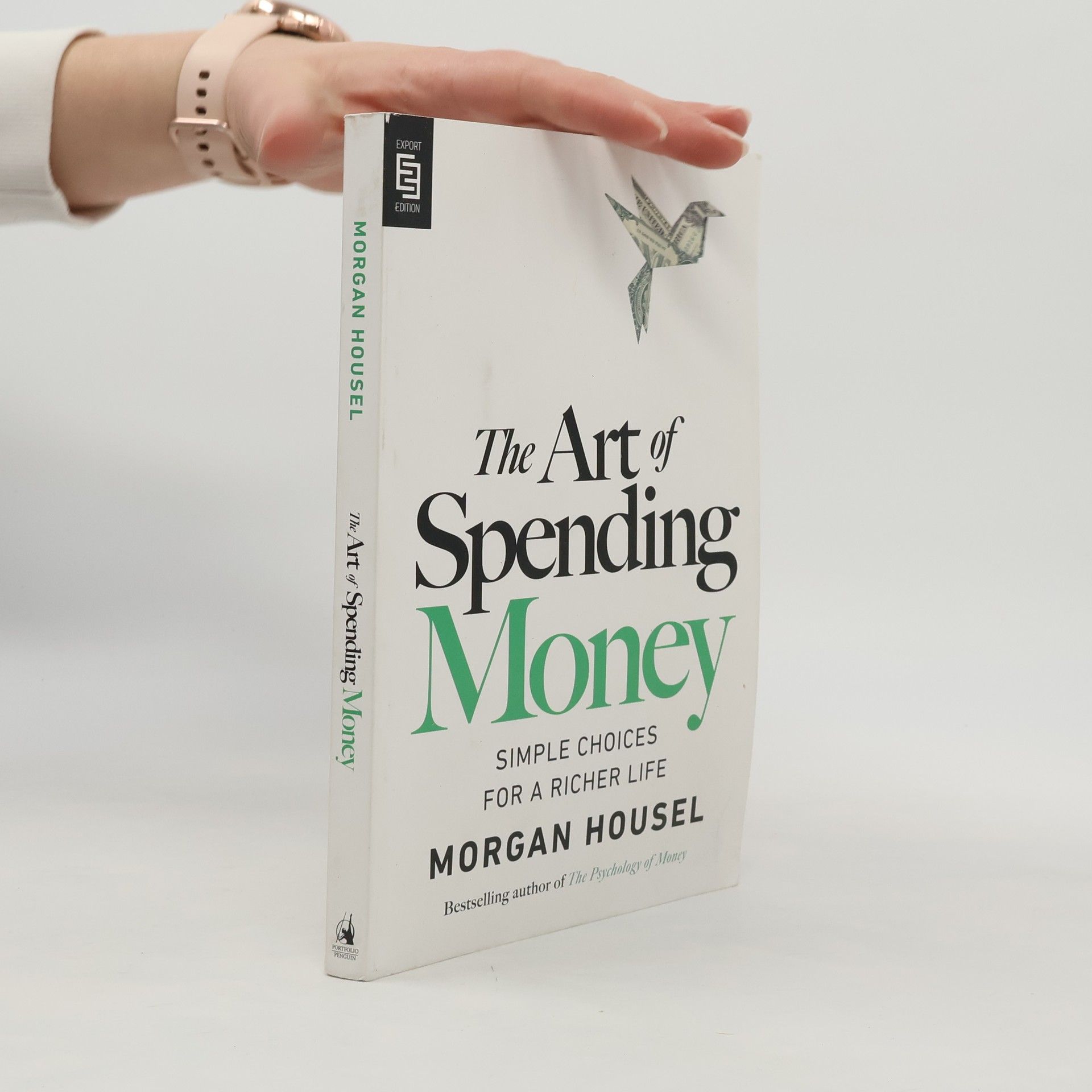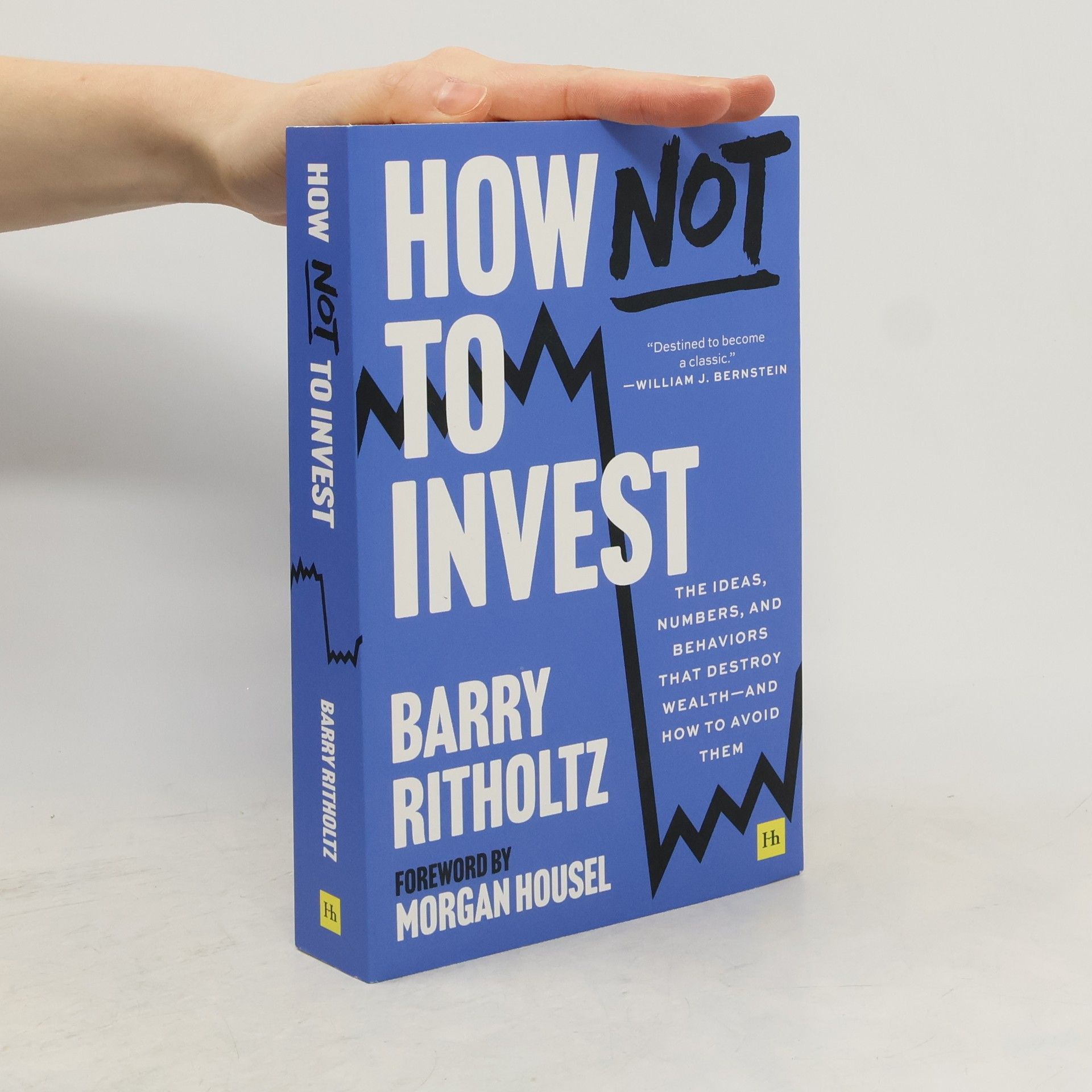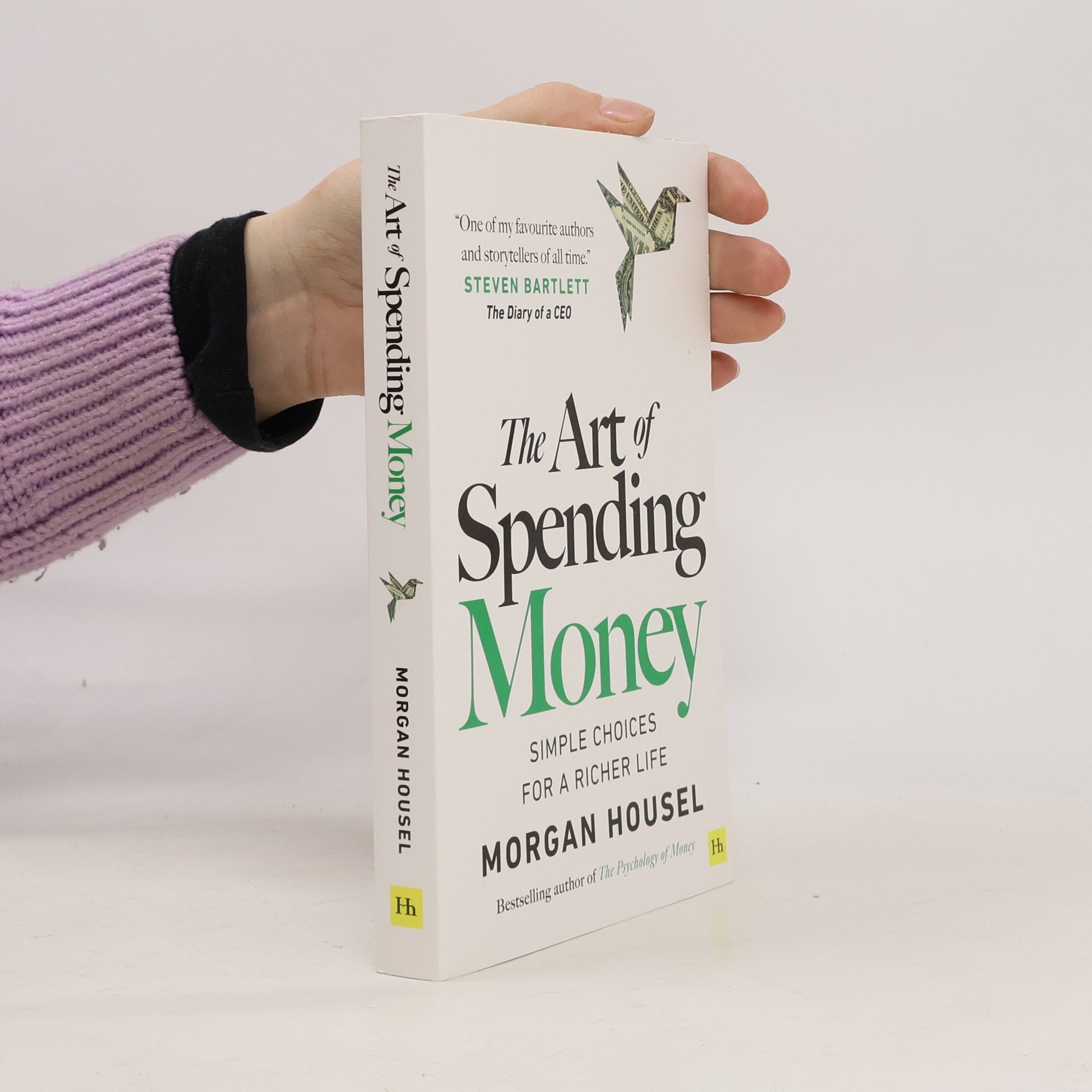Doing well with money isn’t necessarily about what you know. It’s about how you behave. And behavior is hard to teach, even to really smart people. Money—investing, personal finance, and business decisions—is typically taught as a math-based field, where data and formulas tell us exactly what to do. But in the real world people don’t make financial decisions on a spreadsheet. They make them at the dinner table, or in a meeting room, where personal history, your own unique view of the world, ego, pride, marketing, and odd incentives are scrambled together. In The Psychology of Money, award-winning author Morgan Housel shares 19 short stories exploring the strange ways people think about money and teaches you how to make better sense of one of life’s most important topics.
Morgan Housel Livres
Morgan Housel est partenaire chez Collaborative Fund. Il est connu pour ses commentaires perspicaces sur la finance et le comportement humain.




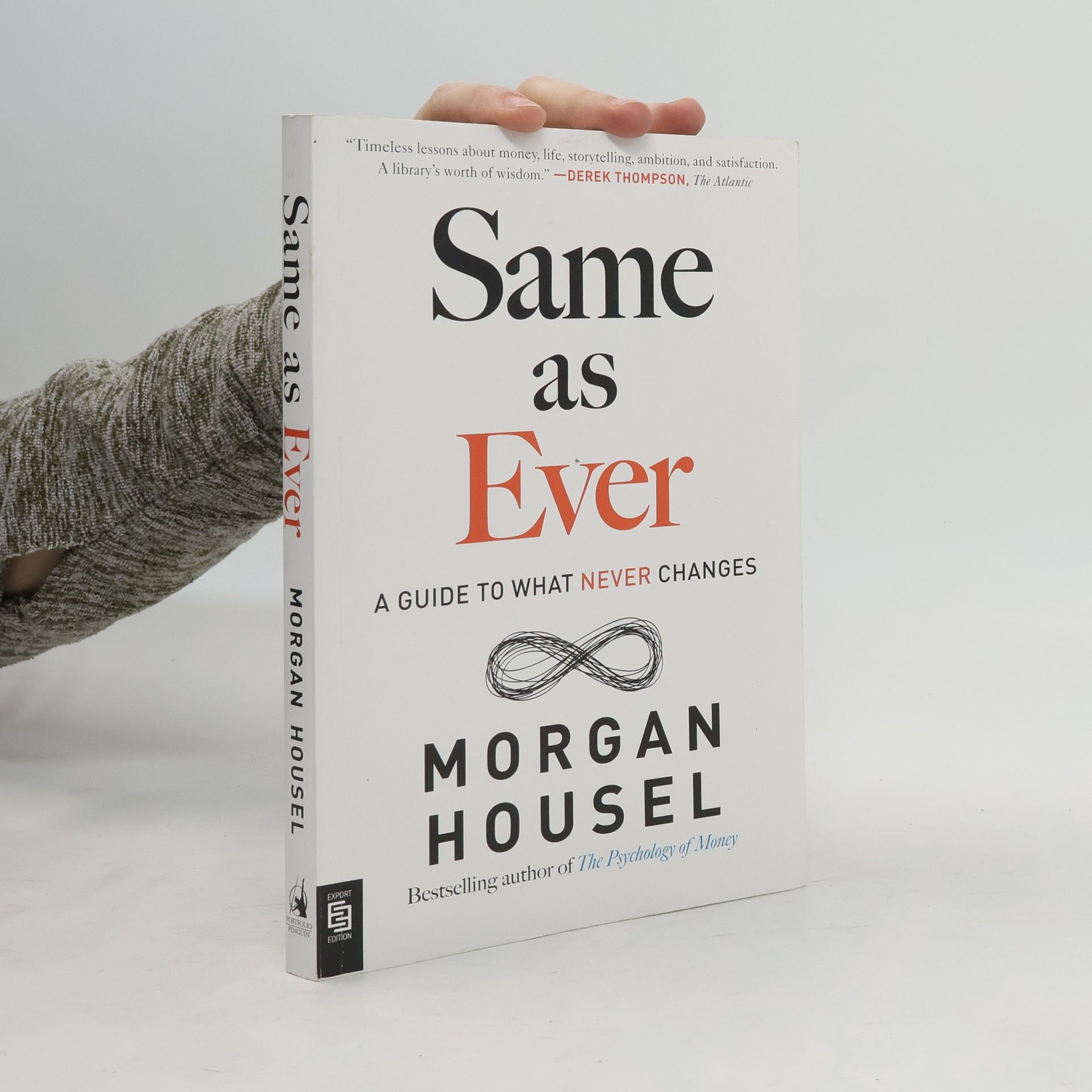

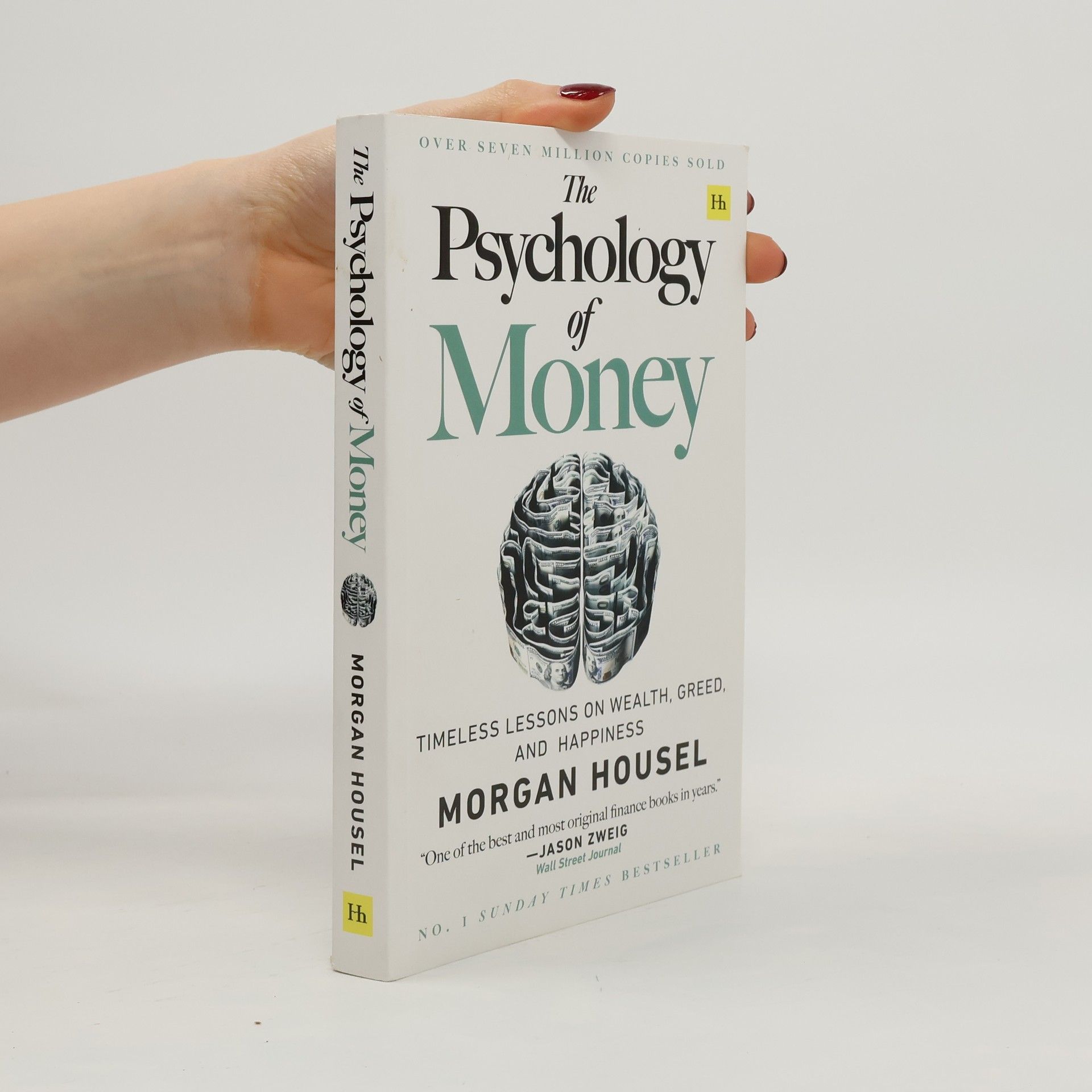
Doing well with money isn't necessarily about what you know. It's about how you behave. And behavior is hard to teach, even to really smart people. The field of finance, including investment, personal finance, and business decisions, is typically presented as a mathematical one, where we are given precise instructions based on data and formulas. However, people in the real world don't use spreadsheets to make important financial decisions. At the dinner table or in the conference room, people mix in their own backgrounds, perspectives, egos, prides, marketing strategies, and peculiar motivations to come up with these decisions. To help you better understand one of life's most important themes, award-winning author Morgan Housel presents 19 short stories in his book The Psychology of Money.
"Timeless lessons about the things that stay the same in a world that never stops changing"--
Armed with this knowledge of the unchanging, you will have a powerful new ability to think about risk, opportunity, and how to navigate the uncertainty of the future.
Achieving financial success does not solely depend on knowledge. The topic at hand pertains to one's conduct and demeanor. Teaching behavior can be challenging, even when working with knowledgeable individuals. Money, encompassing investing, personal finance, and business decisions, is commonly approached quantitatively, relying on mathematical principles. This approach emphasizes using data and formulas to guide our decision-making process. However, it is important to note that individuals typically do not base their financial decisions solely on spreadsheet calculations in practical scenarios. Decisions are often formulated during formal gatherings such as dining tables or meeting rooms, where a confluence of factors, including personal experiences, individual perspectives, self-importance, promotional efforts, and unconventional motivations, intertwine.
The Psychology of Money
Timeless Lessons on Wealth, Greed, And Happiness - Deluxe Limited Edition
- 272pages
- 10 heures de lecture
Special deluxe edition of The Psychology of Money with new, additional bonus chapter content from Morgan Housel, the New York Times bestselling author. Hardback limited edition with sprayed edges, while supplies last. Doing well with money isn't necessarily about what you know. It's about how you behave. And behavior is hard to teach, even to really smart people. Money – investing, personal finance, and business decisions – is typically taught as a math-based field, where data and formulas tell us exactly what to do. But in the real world people don't make financial decisions on a spreadsheet. They make them at the dinner table, or in a meeting room, where personal history, your own unique view of the world, ego, pride, marketing, and odd incentives are scrambled together. In The Psychology of Money, award-winning author Morgan Housel shares 19 short stories exploring the strange ways people think about money and teaches you how to make better sense of one of life's most important topics.
The Art of Spending Money
Simple Choices for a Richer Life - Export Edition
- 256pages
- 9 heures de lecture
How Not to Invest
The Ideas, Numbers, and Behaviors That Destroy Wealth—And How to Avoid Them
- 496pages
- 18 heures de lecture
This book was designed to reduce mistakes. Your mistakes with money. Tiny errors, epic fails and everything in between. You can do thousands of things right, but make just a few of the errors we discuss, and you destroy much of your portfolio. If you could learn how to avoid the unforced errors investors make all the time, you would make your life so much richer and less stressful. The counterintuitive truth is avoiding errors is much more important than scoring wins. How Not To Invest shows you a few simple tools and models that will help you avoid the most common mistakes people make with their money. Learn these, and you are ahead of 98% of your peers. Make fewer errors, end up with more money. How Not To Invest lays out the most common errors investors make. Barry Ritholtz reveals his favorite mistakes, including the lessons we can learn from some of the wealthiest and most error-prone investors. We all make mistakes. The goal with this book is to help you make fewer of them, and to have the mistakes you do make be less expensive.
The Art of Spending Money
Simple Choices for a Richer Life
From the international bestselling author of The Psychology of Money, with 8 million copies sold worldwide - lessons on harnessing the power of money to live a happier life.Can money buy happiness? Yes. Can spending it make you happier? Absolutely. Yet, many of us struggle to unlock its full potential - either by spending on things that don't bring as much joy as they should, or by avoiding investments that would truly enhance our mental well-being.In The Art of Spending Money, award-winning and global bestselling author Morgan Housel offers a refreshingly practical approach to managing wealth while finding deeper meaning and contentment.Instead of one-size-fits-all financial advice, he unpacks the hidden psychology behind our choices - why we confuse envy with admiration, how expectations shape our satisfaction, and why slow, deliberate wealth-building often leads to the best results.More than just a book about money, The Art of Spending Money explores the emotions, biases, and social forces that drive our financial decisions. With sharp insights and practical takeaways, Housel helps you avoid common spending pitfalls, make smarter financial choices, and use money with intention - to not just build wealth, but to actually enjoy it.
Umiejętne obchodzenie się z pieniędzmi wcale nie zależy wyłącznie od tego, co wiesz. Ważniejsze jest to, jak się zachowujesz. A zachowanie jest czymś, czego trudno nauczyć - nawet bardzo bystre osoby. Większość ludzi myśli, że pieniądze - inwestowanie, finanse osobiste i decyzje biznesowe - to przede wszystkim matematyka. Wystarczy mieć odpowiednie dane i wzory, aby się dowiedzieć, co dokładnie należy robić. Jednak w prawdziwym życiu ludzie nie podejmują decyzji finansowych na podstawie arkuszy kalkulacyjnych. Podejmują je przy stole podczas kolacji albo na firmowym zebraniu, pod wpływem mieszanki takich czynników jak ich osobista historia, unikalny światopogląd, ego, duma, marketing i niezrozumiałe motywacje. W Psychologii pieniędzy Morgan Housel - wielokrotnie nagradzany autor - przedstawia 19 krótkich historii, w których opisuje różne dziwne sposoby myślenia o pieniądzach, a także uczy, jak lepiej zrozumieć jeden z najważniejszych tematów w naszym życiu.
